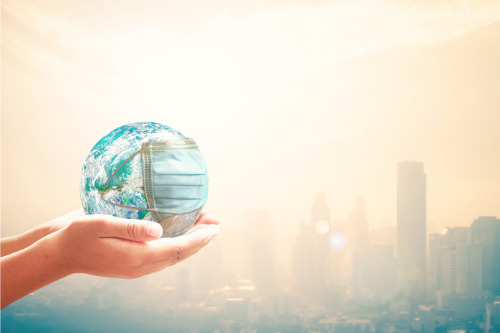
There's no denying that 2020 has been a year of disruption

There’s no denying that 2020 has been a year of disruption. COVID-19 seems to have cast a miasma of doubt, worry and anxiety across the global economy, as employers and employees alike continue to speculate on the future of work.
The virus has shattered our reality and - while it might be panic-inducing – has opened the way for a new normal.
Please spare a couple of minutes to complete HRD’s new global COVID-19 survey.
HRD spoke to Michael Mousseau, PhD, national wellbeing and engagement consultant at Gallagher.
Mousseau gave us some insights into what the ‘new norm’ could look like – and how workplaces will have to change.
“The new normal is something that may be ever evolving,” explained Mousseau. “I believe companies are realizing that flexible hours and work from home can work quite well. For example, twitter alone has told its employees they don’t need to return to a workplace if they don’t want to.”
“Additionally, mental and behavioural health conditions were an epidemic before this started. To steal a quote from a colleague, never let a crisis pass without learning important lessons. In this case, if there really has been any positive light, its employers truly understanding the importance of mental health programs for their employees.”
As employees gear up to return to work, it’s understandable that there will be some apprehension- perhaps even dread.
What will this new world of work look like? What will be my role in it? How will my employer ensure I’m safe in the workplace?
All of these questions and many more are already being laid at HR’s doorstep.
“Returning to the workplace can produce a lot of anxiety,” continued Mousseau. “Situations like these tend to stir up anticipatory anxiety; challenging employee wellbeing and their ability to be engaged. Even for employees who typically are not given to dwell on the fear of the unknown, they too can get caught there.”
So, what exactly can HR do to help ease this transition?
“Having continual contact, building a return to work plan that may include a transitional job, flexibility and support will help your members transitioning back to work – whatever that may look like for your organization,” explained Mousseau.
“Make sure your messages are sincere and empathetic, break the stigma with mental health and eliminate any barrier for someone who is struggling with illness or addiction. The last thing they want to hear is that they need to jump through hoops to access care.”
Please spare a couple of minutes to complete HRD’s new global COVID-19 survey.